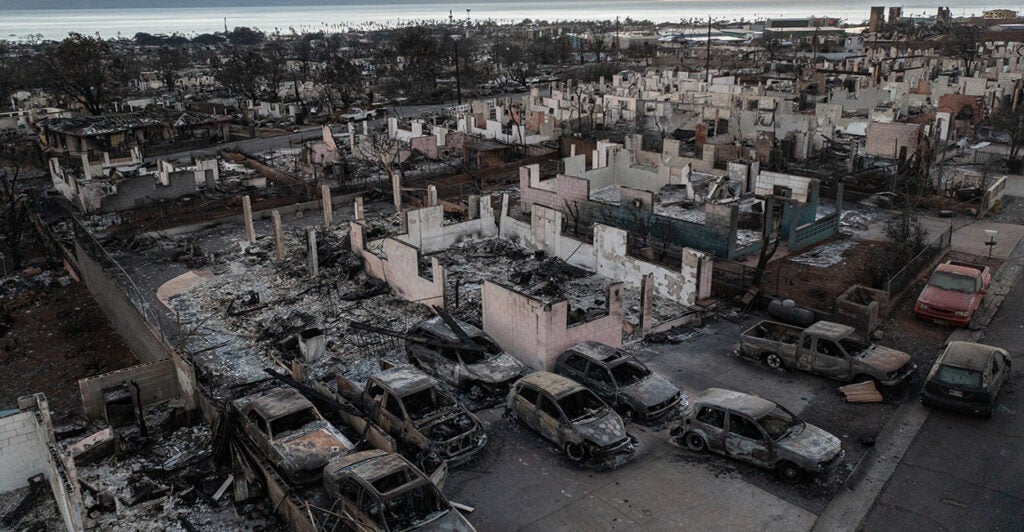Cleanup after wildfires is inherently more difficult than recovery from other natural disasters, according to Brian Cavanaugh, a visiting fellow for cybersecurity, intelligence, and homeland security at The Heritage Foundation.
Unlike a hurricane, which mainly creates wind and water damage, Cavanaugh says, fires damage the structural integrity of buildings and often leave dangerous chemicals behind.
“Wildfire rolls through a community, and you essentially lose everything all the way down to the foundation,” says Cavanaugh, who has former senior-level experience serving in the Department of Homeland Security, at the White House, and at the Federal Emergency Management Agency. “Now, you think once you’ve lost everything down to the foundation, start the rebuild process, but, everything as it burns leaves chemicals and other items on the ground. You’ve got to pick up the personal effects that are salvageable. [There are] a lot of environmental regulations involved with wildfire, so that all takes time.”
Aug. 8 marked one year since a wildfire raged through Lahaina, Hawaii, on Maui. The fire took 102 lives and “destroyed more than 2,200 structures and caused about $5.5 billion in damages,” according to the U.S. Fire Administration.
Cavanaugh, a senior vice president at American Global Strategies, joins “The Daily Signal Podcast” to explain what led to the Lahaina fire and what the status of the rebuilding process is a year after the disaster.
Listen to the podcast below:
